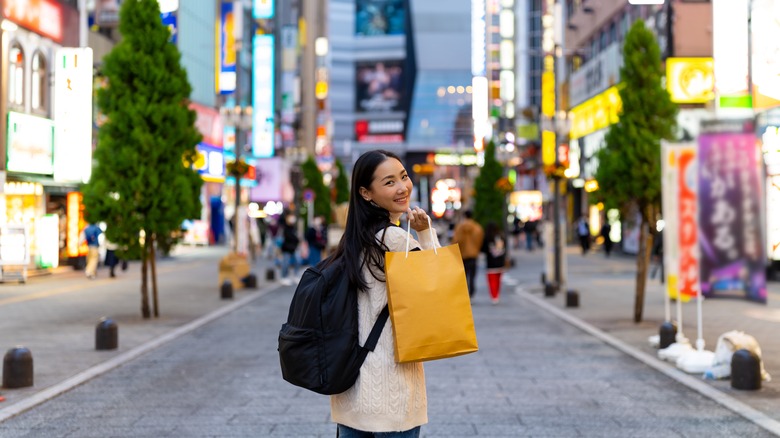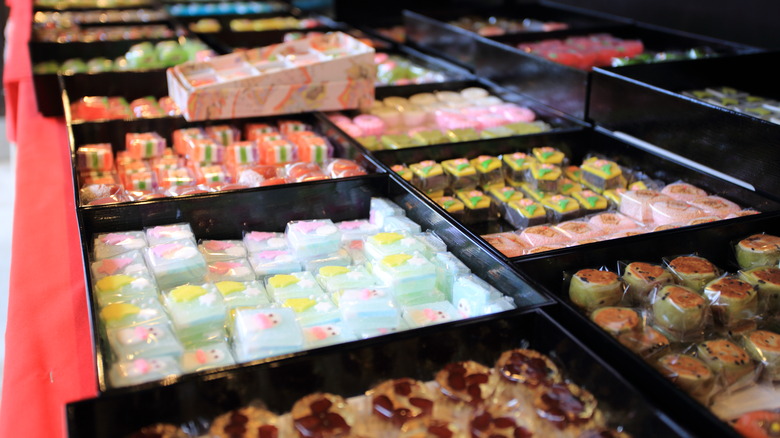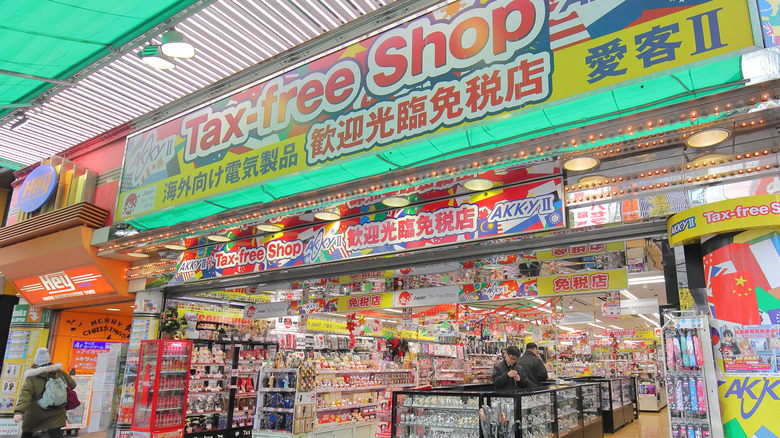The Most Unfortunate Mistake Tourists Make After Purchasing Tax-Free Items In Japan
Shopping in Japan is world class, from the fine jewelry in Tokyo's Ginza district to the tasty snacks in Osaka. Add in the fact that visiting Japan can be cheaper than Thailand (if you do it right), and it's easy to see why so many tourists leave the country with bags full of newly purchased goodies. One of the easiest ways to keep costs down is taking advantage of Japan's tax-free shopping.
Tourists and non-residents visiting the Land of the Rising Sun are eligible to buy certain items without having to pay the standard 10% consumption tax at the register. Only around 60 countries offer this benefit to travelers, and Japan's tax-free shopping scheme is one of the most convenient to navigate. With that said, there are some important rules to follow if you want to maximize your savings.
One such rule — and one of the easiest mistakes to make — applies to consumable products. When you purchase tax-free consumables, you must keep them sealed as long as you're in Japan. If you open the item before leaving the country, you will be forced to pay sales tax at airport customs.
What products are considered consumables?
Consumables might be among the items you're most eager to use when visiting Japan, but if you want to stretch your travel budget, it's crucial to keep these products closed and unused until you've left the country. Consumables typically include food and drinks (such as snacks, liquor, or foods packaged as souvenirs), medicine, and cosmetics. You'll know which items are consumables by the special bag or packaging they're placed in, which should be completely sealed.
If you purchase other tax-free items, such as a new camera or clothes from the best brands to buy while you're in Japan, it's generally okay to open the packaging and use the product before leaving the country. However, these general goods are sometimes packaged along with consumables when purchased together. If your non-consumables are sealed up along with your senbei crackers, eye drops, and face wash, the same rule applies: Refrain from opening until you pass through customs.
Other points to know when buying tax-free goods in Japan
If you're visiting Japan for the first time, it helps to get acquainted with the country's tax-free system before going shopping. First, tax-free items can't be purchased in every store in Japan. Whether you're getting your fashion fix in Tokyo's Harajuku district or eyeing rice cookers in Akihabara, look for a sign with the tax-free symbol (you can spot it by its flowery red circle motif) to confirm a shop offers tax-free checkouts to tourists.
You also have to spend a certain amount of money to reap the benefits. As a rule of thumb, the minimum purchase amount required is 5,000 yen per category. In other words, you must spend at least 5,000 yen on consumables or 5,000 yen on general goods (including clothes and accessories, electronics, appliances, and other non-consumable souvenirs). This total must come from a single store purchased within a single day, with the exception of department stores and malls, which may combine purchases across shops.
Finally, don't expect to receive tax-free items just by saying you're a tourist. You must show a valid entry stamp in your passport to claim the discount. In some stores, you may also need to go to a special tax-free counter to finalize the purchase.


